President Garfield's career was cut short so soon after his accession to office, that he had no opportunity of showing whether he had the will and the power to obtain action for the redress of public grievances, which the congressional factions were disposed to ignore.His experience and his attainments were such as should have qualified him for the task, and in his public life he had shown firmness of character.His courageous opposition to the greenback movement in Ohio had been of great service to the nation in maintaining the standard of value.When a party convention in his district passed resolutions in favor of paying interest on the bonds with paper instead of coin, he gave a rare instance of political intrepidity by declaring that he would not accept the nomination on such a platform.It was the deliberate opinion of Senator Hoar, who knew Garfield intimately, that "next to the assassination of Lincoln, his death was the greatest national misfortune ever caused to this country by the loss of a single life."The lingering illness of President Garfield raised a serious question about presidential authority which is still unsettled.
For over two months before he died he was unable to attend to any duties of office.The Constitution provides that "in case of the removal of the President from office, or of his death, resignation, or inability to discharge the powers and duties of the said office, the same shall devolve on the Vice-President."What is the practical significance of the term "inability"? If it should be accepted in its ordinary meaning, a prostrating illness would be regarded as sufficient reason for allowing the Vice-President to assume presidential responsibility.Though there was much quiet discussion of the problem, no attempt was made to press a decision.After Garfield died, President Arthur, on succeeding to the office, took up the matter in his first annual message, putting a number of queries as to the actual significance of the language of the Constitution--queries which have yet to be answered.The rights and duties of the Vice-President in this particular are dangerously vague.The situation is complicated by a peculiarity of the electoral system.In theory, by electing a President the nation expresses its will respecting public policy; but in practice the candidate for President may be an exponent of one school of opinion and the candidate for Vice-President may represent another view.It is impossible for a voter to discriminate between the two; he cannot vote for the candidate for President without voting for the candidate for Vice-President, since he does not vote directly for the candidates themselves but for the party electors who are pledged to the entire party ticket.Party conventions take advantage of this disability on the part of the voter to work an electioneering device known as a "straddle," the aim of which is to please opposite interests by giving each a place on the ticket.After Garfield was nominated, the attempt was made to placate the defeated faction by nominating one of its adherents for Vice-President, and now that nominee unexpectedly became the President of the United States, with power to reverse the policy of his predecessor.
In one important matter there was, in fact, an abrupt reversal of policy.The independent countries of North and South America had been invited to participate in a general congress to be held in Washington, November 24, 1881.James Gillespie Blaine, who was then Secretary of State, had applied himself with earnestness and vigor to this undertaking, which might have produced valuable results.It was a movement towards closer relations between American countries, a purpose which has since become public policy and has been steadily promoted by the Government.
With the inauguration of President Arthur, Blaine was succeeded by Frederick T.Frelinghuysen of New Jersey, who practically canceled the invitation to the proposed Congress some six weeks after it had been issued.On February 3, 1889, Blaine protested in an open letter to the President, and the affair occasioned sharp discussion.In his regular message to Congress in the following December, the President offered excuses of an evasive character, pointing out that Congress had made no appropriation for expenses and declaring that he had thought it "fitting that the Executive should consult the representatives of the people before pursuing a line of policy somewhat novel in its character and far-reaching in its possible consequences."In general, President Arthur behaved with a tact and prudence that improved his position in public esteem.It soon became manifest that, although he had been Conkling's adherent, he was not his servitor.He conducted the routine business of the presidential office with dignity, and he displayed independence of character in his relations with Congress.But his powers were so limited by the conditions under which he had to act that to a large extent public interests had to drift along without direction and management.In some degree, the situation resembled that which existed in the Holy Roman Empire when a complicated legalism kept grinding away and pretentious forms of authority were maintained, although, meanwhile, there was actual administrative impotence.Striking evidence of the existence of such a situation is found in President Arthur's messages to Congress.















